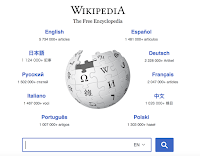2023-10-10: In appreciation of the "ridiculous and unworkable" projects that make the Internet great and research possible

https://xkcd.com/2085/ The Internet Archive is hosting their annual celebration this week ( October 12, 2023 ), and I wanted to take this opportunity to both 1) encourage your attendance (virtual for most of us, but if you're in San Francisco, you can attend in person), and 2) express my appreciation and gratitude for continued existence of the Internet Archive, their evolving products and services, and their support of the research community. The ongoing devolvement of Twitter into 4chan has caused me to reflect on the platforms, services, and corpuses on which I have built a research program over the last 20+ years. Discussing the Twitter situation will be the topic of a future post, but here I want to laud the Internet Archive, specifically the Wayback Machine, and by extension, the suite of other public web archives, such as Archive.Today , Arquivo.pt , and the many members of IIPC . In the past I've referred to the Internet Archive as th...

